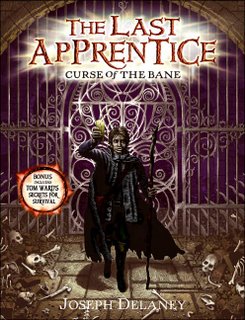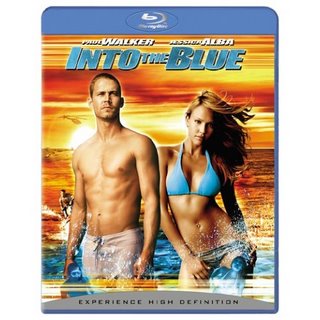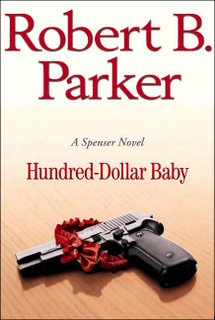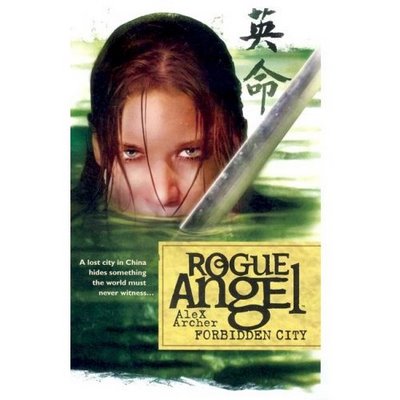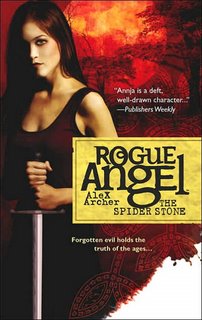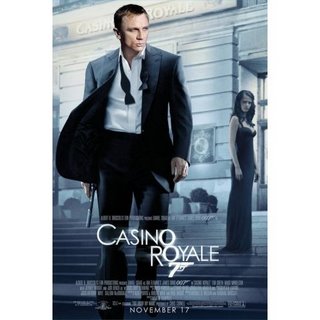 007 Is Back! And He's Shaken, Not Stirred, In This Blistering Remake!
007 Is Back! And He's Shaken, Not Stirred, In This Blistering Remake!When Ian Fleming first wrote the novels about him back in the 1950s and 1960s, James Bond was a tough-as-nails, take-no-prisoners spy for the British Empire back during the days of the Cold War when nuclear threat loomed everywhere. Sean Connery played Bond that way in the beginning and never truly got away from it, but over the years, Bond got softened up and too chatty. Pierce Brosnan offered up the excellent Goldeneye in the movie version of 007 and followed that with three pretty good Bonds. Unfortunately, Ian Fleming didn’t live long enough to see more than two of the James Bond films, so we don’t know what he would have thought of Hollywood’s take on him over the long haul.
In fact, Casino Royale had been made twice before. Once for television (an atrocity, by most fans' standards) then again as a feature movie starring David Niven (which most fans want to forget although Fleming himself actually suggested using Niven as 007). This third incarnation of the movie adapted from the book hews more closely to the original plot.
The movie going audience seems to be split over what to make of the newest British super-secret agent who’s just been licensed to kill. Daniel Craig is going to remake the franchise and bring it back more to Ian Fleming's original creation. Craig's Bond is cold, calculating, and driven. A hard, bloody job takes a harder, bloodthirsty man who brings everything to the bottom line no matter what the cost. Craig even looks as rough-and-tumble as Connery did in the early movies. He has a predator's body, heavily muscled and lean. His eyes are those of a hunter. Whoever his fight coordinator is has done a wonderful job of getting Craig up close and personal in his technique, and working with the film crew to catch the savagery of the hand-to-hand battles. There is an action and immediacy in these scenes that hasn’t been shown before. Many moviegoers are likening it to Matt Damon’s work in the Bourne movies, and that isn’t far off the mark. It’s all very well done.
Daniel Craig has done a lot of different things, including being in a Tomb Raider movie and other action films, so he has quite a bit to bring to the picnic. Also, at 38, he should be able to carry the role for a few movies. Martin Campbell, the director, gave us Zorro with Antonio Banderas and Brosnan's first Bond film, Goldeneye. Bond writers, Neal Purvis and Robert Wade (The World Is Not Enough and Die Another Day) return for this movie as well as the next, but Paul Haggis (Crash, Million Dollar Baby, Flags Of Our Fathers) joins them. The writing is tight and moves quickly, letting the action and the camera take most of the work and setting up some deftly done character exchanges and plot revelations.
The plot in Casino Royale shifts and evolves, begging a little patience from the audience but ultimately rewarding it. The movie actually "feels" as though it's come to an ending three times, with mixed results, before finally cutting to credits. I was actually ready to go twice shortly after a couple action sequences, and the third “ending” was almost telescoped too far from the action. I started to feel punch drunk from the rollercoaster ride of expectation. But after all was revealed, the endings stayed true to form for the Bond books.
While in Madagascar, Bond -- newly risen to double-oh status in a dark, cold prologue that really paints a gritty picture of what 007’s work is al about -- is hunting a terrorist funding network through the only contact MI6 has been able to ferret out. Almost immediately, the film plunges into headlong action that takes advantage of parkour (http://en.wikipedia.org/wiki/Parkour), the free running style that's gotten so much attention in France. These sequences are awesome, and even when you see them you'll have trouble believing them. Of course, they're helped along by some CG work and stunt gear, but nevertheless, it's a romp that ends in a fiery shootout at an embassy.
We get introduced to Le Chiffre (Mads Mikkelsen), the terrorist banker that is Bond's true quarry, in a threatening scene that shows what he is up against and the dangers he faces on a daily basis while laundering and investing terrorist profits. He has an oddity, as most Bond villains do, though his isn't of a homicidal nature. He has mismatched eyes and one of them weeps blood.
Bond picks up Le Chiffre's trail in the Bahamas, providing a nice scenic backdrop to action and beautiful women in swimwear. Bond’s infiltration of the Ocean Club to get the information he needs is simple and direct, but with all the finesse of a sledgehammer at work. This is Fleming's raw Bond at work that so many of the moviegoers haven't ever witnessed because they haven't read the books.
The encounter with Solange (Caterina Murino) is pure Bond with the way he uses her to get information he needs, then quickly walks away from her. Later, when confronted with the matter by M (Judi Dench returning to the role she has claimed as her own in a way no one else has), she tells Bond that normally she would tell an agent not to blame himself. But she says she knows that she doesn’t have to tell him that. It’s a cold moment in which today’s movie audience gets a glimpse of the real Bond, the agent that Fleming wrote about. For him, a mission is always about success and his own survival. Nothing else – no one else – matters.
Vesper Lynd (Eva Green) is one of the most interesting Bond women we’ve ever gotten to know through the course of a movie. Typically, we don’t get the complete story of the women that pass through 007’s life, but we don’t really need to. Vesper Lynd’s story isn’t that way. By the time we reach the end of the film we wish we’d gotten to know her a little more because she seems so much like Bond.
But a Bond film is about action and intrigue, and Casino Royale -- to shamelessly employ a pun – delivers in spades. Things don’t go as 007 would have them, but they do get where he needs them to be. The chemistry between 007 and Mathis is awesome, especially the way the other agent so coldly deals with objectives that get in their way, and I hope he gets to come back for the next movie. Although, with the way everything is written, you really don’t know.
The action and plotting quickly adds layers of complexity, providing a great bit of storytelling that somehow even manages to make the protracted card game interesting even though it should have passed much more quickly. Then the endings begin, and with them some leaps in the plotting that are a little weak and stretch the willing suspension of disbelief. Not that it matters at this point, because we’re firmly aboard the rollercoaster.
Casino Royale is the start of the new Bond franchise. The coming movies are going to be interesting, and this movie undoubtedly sets the tone. As yet, the tech is realistic, not over the top, and there’s no mention of Q. A few of the familiar elements are missing, but 007’s CIA counterpart, Felix Leiter is on hand, so there is a not to continuity. Divided though the camp may be, Daniel Craig looks like the 007 for this generation, and he’s off to a blazing start.

